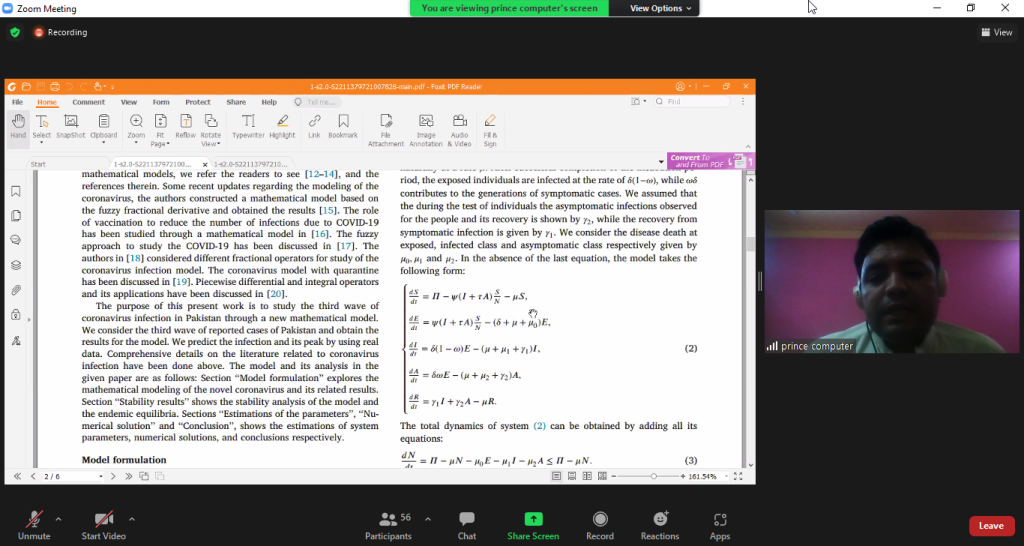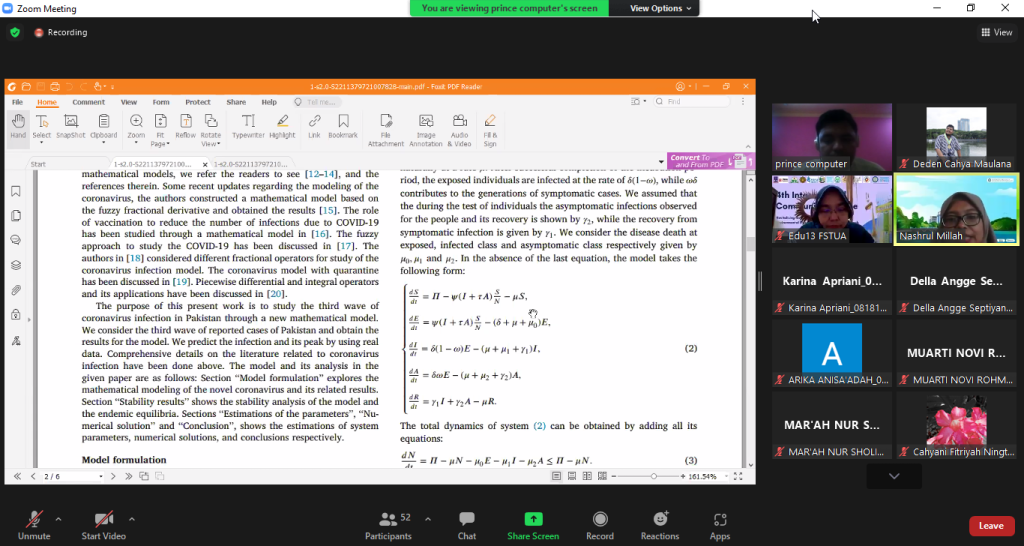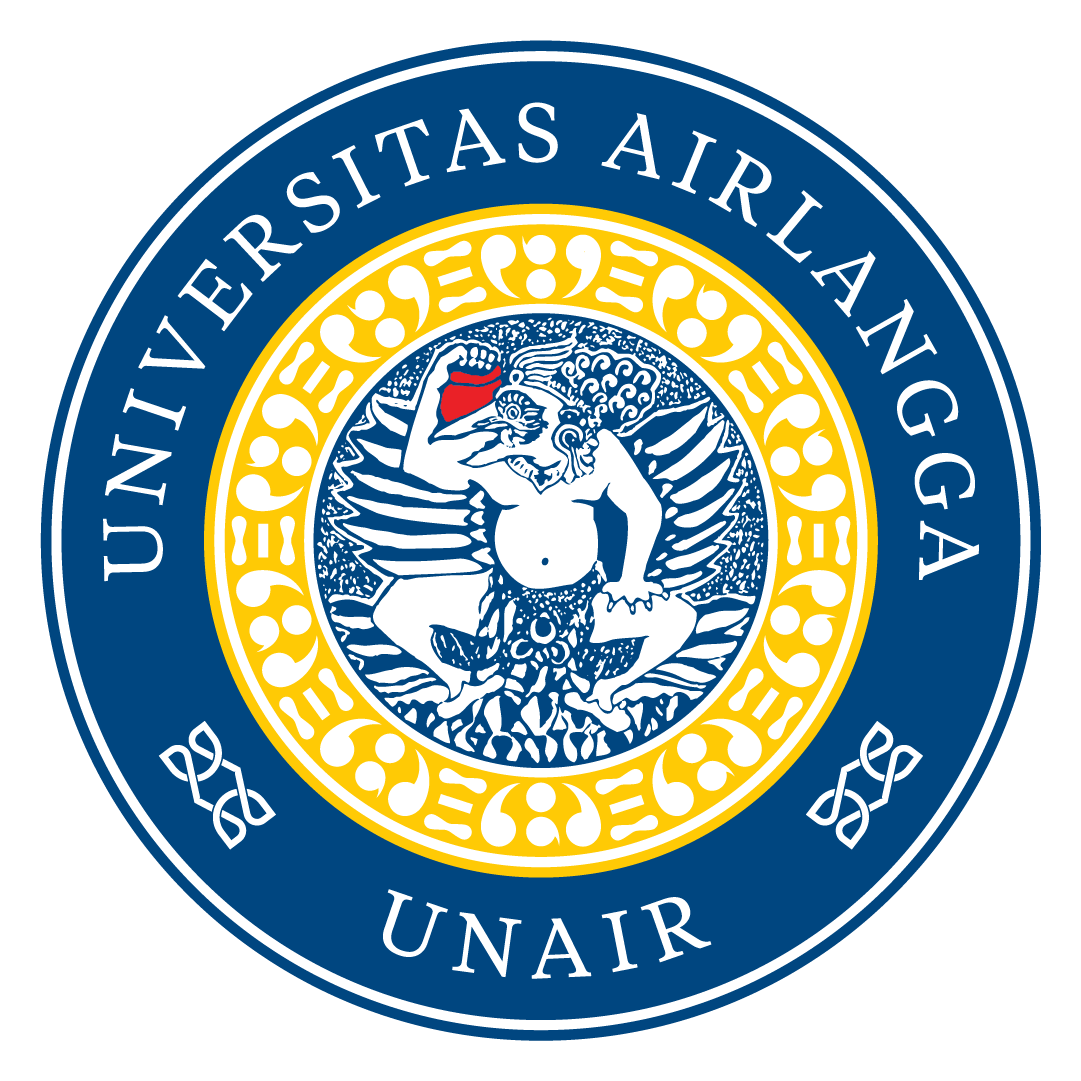International activities are crucial for enhancing Universitas Airlangga’s global ranking. Collaborative efforts in education, research, and community service play a vital role in this regard. One of the ways to foster international cooperation in education is through webinars or guest lectures featuring speakers or participants from abroad.
Following the success of a webinar on Graph Theory attended by participants from various national and international universities, the Mathematics Program at Universitas Airlangga organized another guest lecture. The speaker, Dr. Muhammad Altaf Khan from the Institute for Ground Water Studies, Faculty of Natural and Agricultural Sciences, University of the Free State, South Africa, was invited to deliver this lecture. The event took place during the “Selected Topics in Applied Mathematics” course on Thursday, September 16, 2021. This was Dr. Khan’s second time lecturing at the Mathematics Program, having previously delivered a guest lecture on Mathematical Modeling in June.


The guest lecture began with introductory remarks from Dr. Fatmawati, a lecturer in the Mathematics Program at UNAIR, who oversees the “Selected Topics in Applied Mathematics” course. Dr. Khan’s lecture focused on the topic “Global Stability of the Dynamical System.” He presented theories related to determining the stability of equilibrium points in dynamic systems using a function known as the Lyapunov function. Dr. Khan also provided examples of applying this theory to ascertain the stability of dynamic systems in models of Covid-19 and cholera spread, which are part of his research.
The guest lecture lasted approximately 100 minutes and concluded with a Q&A session. Moving forward, it is hoped that such activities will be frequently organized to enhance the quality of Universitas Airlangga, particularly within the Mathematics Program. These events not only foster good relations with international partners but also offer valuable experiences to students, allowing them to experience an international learning environment. Consequently, students will find it easier to adapt when pursuing further education abroad.

